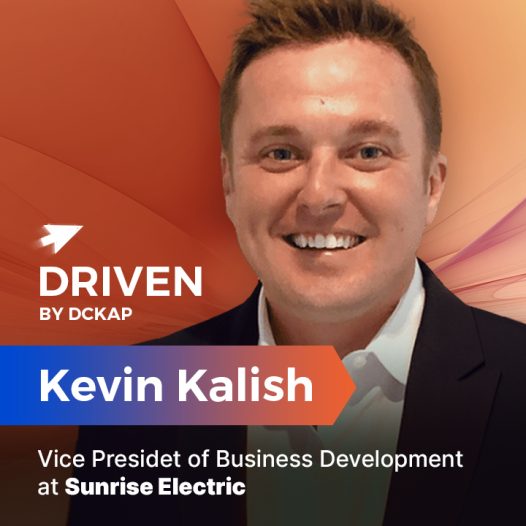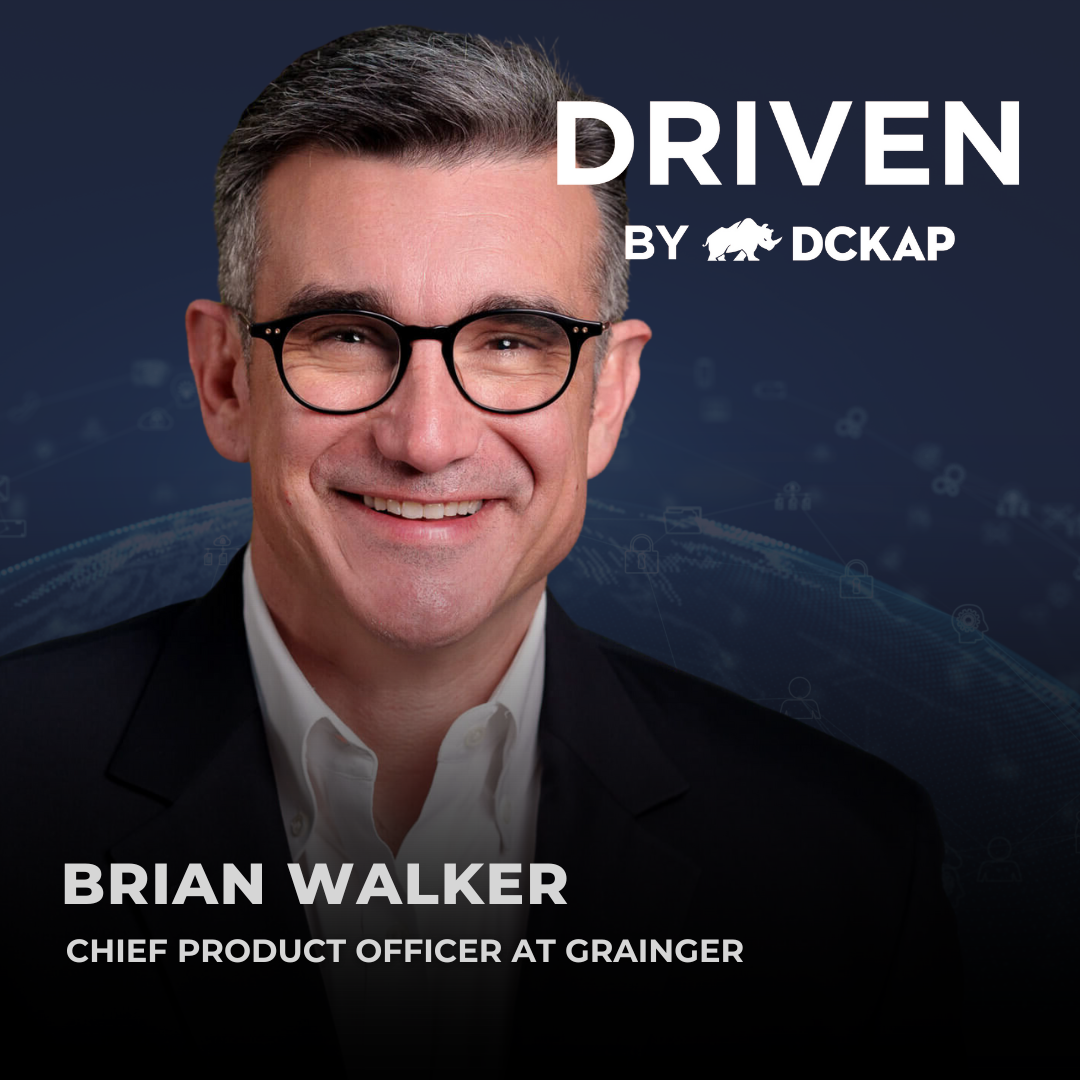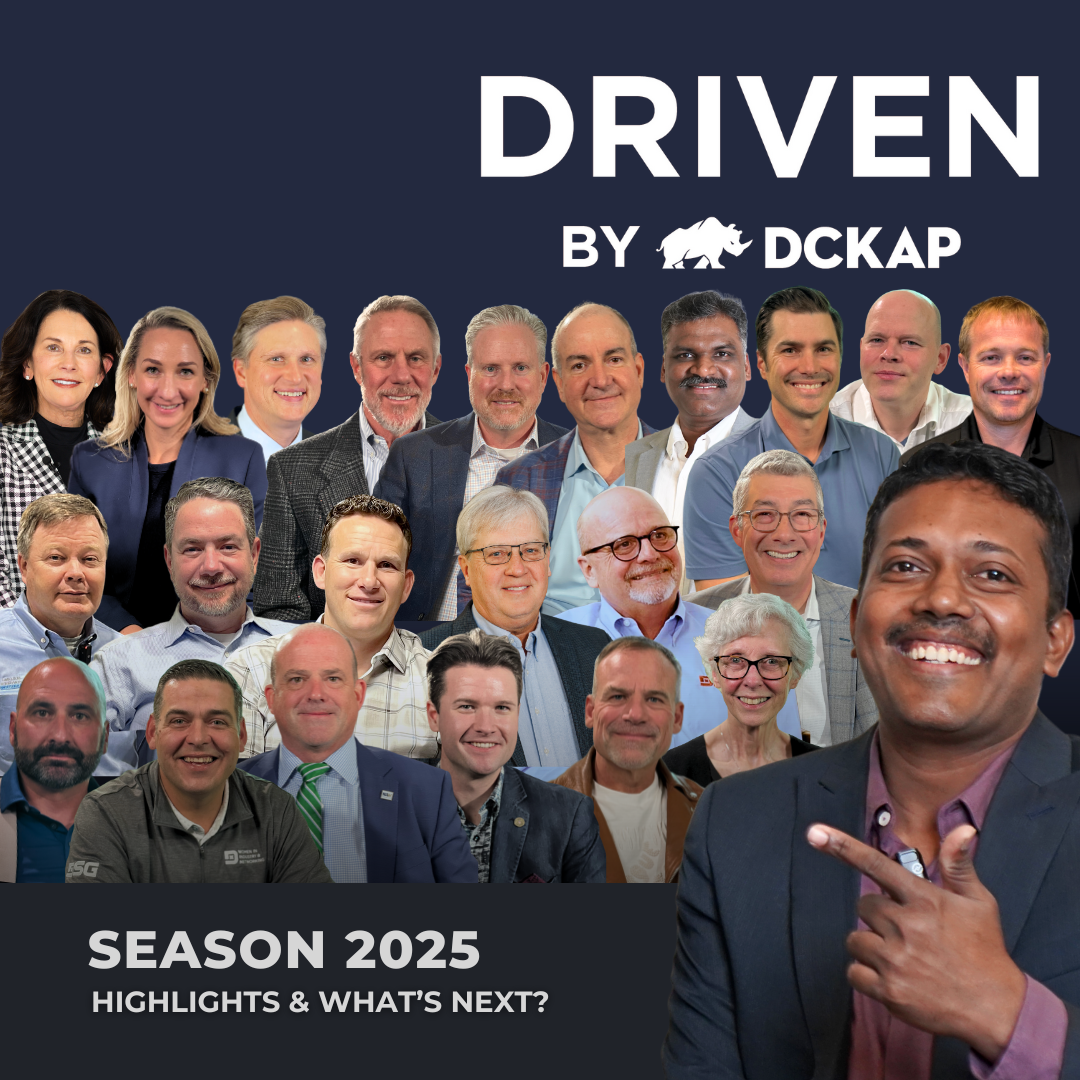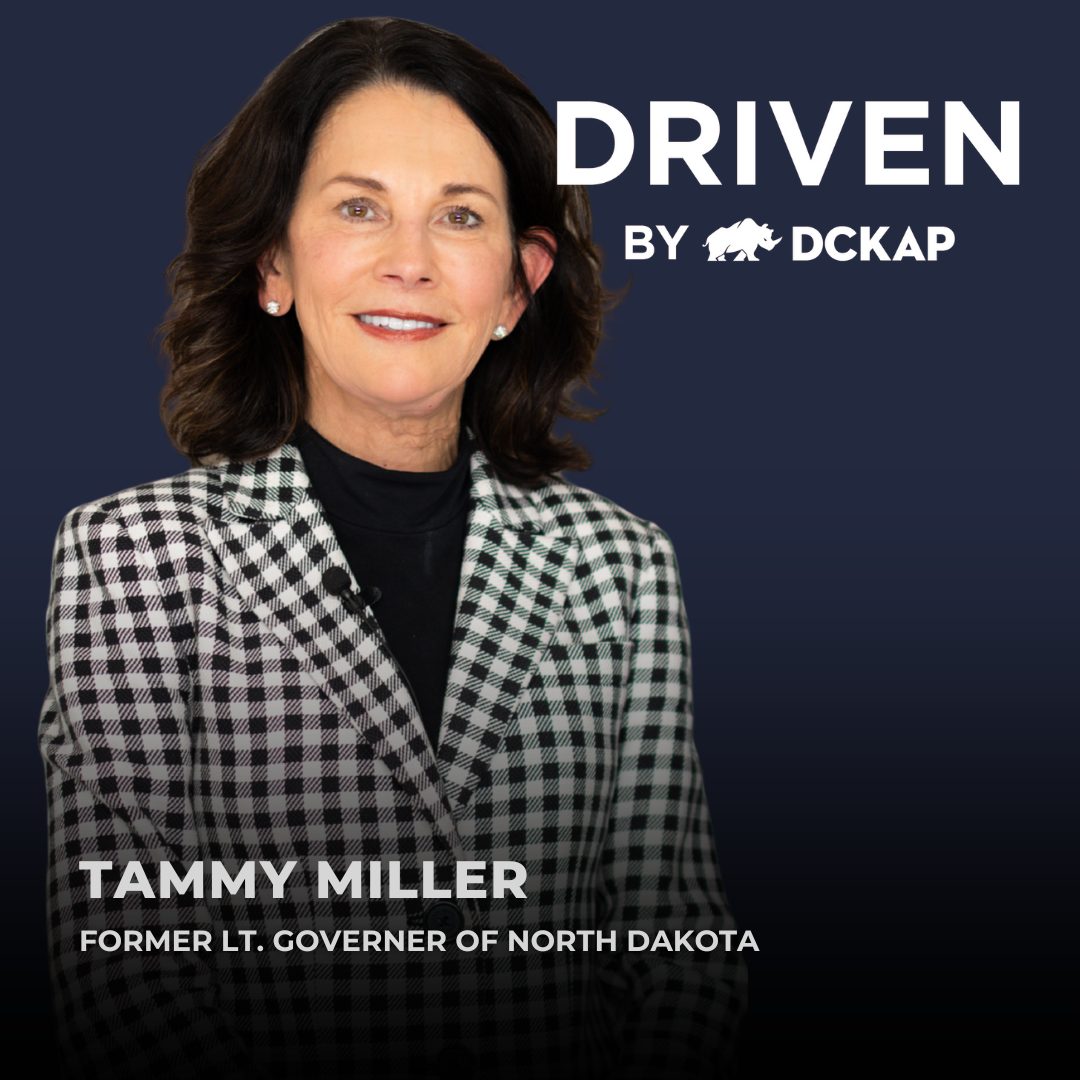Kevin Kalish is the Vice President of Business Development at Sunrise Electric Supply. With a strong background in data-driven software development, he oversees sales management and digital solutions that help support their customers in electrical distribution.
In this insightful interview with Karthik Chidambaram, Founder & CEO of DCKAP, Kevin talks about the journey he’s taken in his career, the importance of data in distribution, and how tech plays a critical role in ecommerce, helping to improve sales and elevate customer success.
OR LISTEN ON:
Guest Bio
Kevin Kalish, VP of Business Development at Sunrise Electric, is a licensed NEC professional with a background in data-driven software development. He oversees sales management and digital solutions for customers.
Show Links and References
- Read more about the work we did with Sunrise Electric through DCKAP Integrator here.
Karthik Chidambaram:
So Kevin, thank you so much for joining me today. It's exciting to have you join us at the Driven show. You are, today, the Vice President of Development, Business Development, at Sunrise Electric. You've come a long way. But, can you talk about the early stages of your career? How did you get started when you were young, and you're still young, but how did you get started?
Kevin Kalish:
I appreciate that. So, early on, I was working in more of a marketing and sales capacity for a couple years after college and started working for myself doing data management at a company called think data. And, I was working with mostly real estate and mortgage companies doing data driven marketing. And this was 2006. I started that, and then 2008 happened. And obviously, the real estate mortgage industry kind of took a turn.
At that time, I was working out of an office. My uncle owned a logical contracting business. So they were kind enough to share some office space. And when my business started to, you know, fiddle away because of what was going on in the market, you know, with the 08/09 real estate crash. They walked in one day and said we have this Estimating Software, do you want to try this? And so that's how I got into the electrical contracting business. I was an estimator project manager with them, got my electrical contractor's license, and did that for a while and started doing some software development. And that's how I met the folks with Sunrise Electric.
Our company was a customer of Sunrise Electric, and I met the folks there. And they saw what I was doing with the software development side of the business. And we started talking, and it made sense for me to come over with these guys. So I could work with a wide range of contractors and other folks in terms of trying to help with automation. And, it's evolved. So yes, now in my Business Development role, in overseeing the sales team, and overseeing our customer technology. So never a slow, slow day. So, that's kind of the short version of how I got to where I'm at today.
Karthik Chidambaram:
Awesome. Sales and Business Development is always fun. And yeah, I vividly remember the 2008/2009 financial crisis as well. Really glad you converted that into an opportunity. And upscaled in going to Sunrise.
Can you tell us about the Sunrise Electric business? What is it that Sunrise Electric primarily focuses on? And who's your primary audience in terms of customer base? Who do you sell to?
Kevin Kalish:
Sure. So, 99% of our business is to electrical contractors. And we recently started, you know, identifying market segments that we’re part of even though we sell, the majority of our business is to contractors, so those are our partnerships. We provide service to those contractors. So, we're an integral part of their team. Deliveries twice a day to their job sites when needed, Saturday deliveries, emergency calls, we do a lot of value engineering, design, build work, we have engineers on staff in house. So, Sunrise Electric is a Chicagoland electrical distributor, but we're also doing work across the country. Some of our clients are nationwide distributors. So, we've been at it since 1986, in Chicago, and we are definitely one of the leading distributors, if not the, in the Chicagoland market.
Karthik Chidambaram:
Chicago is great. I used to live there and always loved Chicago. And that's the first, when I visited the first facility, I landed in the US. It's always special. So, it's great. Thank you for sharing that.
We talked about the ecommerce challenges, so how do you deal with ecommerce with electrical contractors or in the electrical distribution industry? What are some of the challenges you have faced? And what are some of the problems you're solving there?
Kevin Kalish:
Sure. Great, great question. How long do we have? Because this could go for a while. But no, it's a great question. Because every contractor that we work with has a process in place that they're looking to increase their efficiencies, improve their existing process, specifically on the procurement side. So, you know, there's multiple streams from a contractor's perspective.
They have daily material, you know, what we've referred to as dailies which could be pipe, wire, boxes, fittings, anything that can go into commercial, industrial, even residential building to bring power throughout the space. There's the switchgear, which would connect to the utility to bring power to the infrastructure which is kind of covered from the daily materials. So, every contractor, or not every but I'd say 99% of the contractors I meet with, they're looking to improve. So, when we talk about these orders coming in from the field on a daily basis, they're being placed from, you know, some people are handwriting a list, taking a picture texting it, you have people sending emails, you have phone calls, and faxes, luckily, kind of gone away. But there's multiple channels, so our inside sales team is inundated with phone calls, texts, emails throughout the day. You know, even some folks are using chat. So, definitely, there is no consistent platform.
In terms of E commerce, yes, we offer it to our customers, of course. We have online portals, we really look at it from more of a customer service perspective. And how can we better service our customers, through technology in the portal. But, you know, for an example, our biggest challenge, when we started on the ecommerce side, was I built the platform, which was not integrated to our ERP system. So, this goes back to 2016, when we first rolled out our first customer technology, and allowed customers to create lists and items and select items from a database that that we built, and transmit that data along to inside sales or other facets for pricing, availability, orders, that type of thing. That was probably the biggest challenge that we faced back in the day, was having all these siloed systems. And I'll be honest, today, we're still working to connect, connect all the dots. But yeah, I mean, in terms of E commerce, I think the electrical industry is behind the curve. I think there's a lot of opportunity. There's a lot of folks trying, there's the need and the desire from the end users. But adoption is still a long, long way from us, I believe.
Karthik Chidambaram:
It's talking about the different channels, where the customer service personnel use data flow automation is a very important topic, and that's talked widely in the industry. What are your thoughts on data flow automation initiatives at Sunrise?
And we also talked about integrating your ERP with your E commerce, which was not integrated back in 2016. And you worked towards solving that problem. So, can you talk about your data flow automation initiatives at Sunrise? And how does that impact your digital success?
Kevin Kalish:
Sure. Another great question. So, in 2019, we successfully completed our ERP conversion. So once we, which we knew was coming so we were running siloed systems, our ecommerce was started in 2016. And it was completely separate from the ERP. Well, we didn't do any integration, because we knew the conversion was coming in 2019. Once we got our new ERP system up and running, then we started looking for solutions. How do we connect this data? Because we were doing flat files and CSV imports, and updating it was extremely difficult.
So, after the ERP conversion, then we did integrate with the help of your team, we connected our ERP system through DCKAP. And then that brought us on to, we built a new front end customer facing portal, but it's just a highly data driven tool now, you know, that we could talk about in terms of customer service, and there's a lot more to it than just the commerce. You know, to me, that's a small piece of the puzzle of what our customers are challenged with on a daily basis. There's a lot of value from the data out. But in terms of the data flow and the automation, in terms of the data flow in the automation within the industry itself, it's an ongoing challenge. Because if you look at the contracting side, our customers, they start typically with bidding on a project. So they're using an estimating software, there's different IDs, there's different tools that they're trying to update, pricing and connect, and that's one part of the industry, and then they get awarded the project. Now that data's got to move on to the procurement stage, and so on and so on.
Currently, it's very siloed, you know, so we're constantly looking for ways to integrate our data with our customers' systems. So we're looking at, how do we integrate with our customer ERP systems directly? How do we, you know, integrate data into their estimating software more efficiently? And again, there's pricing, there's an array of data that's needed to connect all these systems together. And historically, it's been extremely siloed, and I think that's part of the efficiency and process improvement of the pain that contractors and end-users go through on a daily basis.
Karthik Chidambaram:
My question to you is, why do you think it's important for your ERP, what ERP you are using? And why do you think it's important for your ERP to talk to your ecommerce? So, why did you choose the DCKAP integrator? Why did you need it? And can you do without it?
Kevin Kalish:
We chose the DCKAP Integrator, because when I was looking, I didn't want to be stuck to a front end. So, a lot of times, let's say if you partner with an E commerce company, they do your integration, they kind of take control of that, right? So, you're kind of stuck. So to say, we want to have a lot of flexibility, and we think that constantly, the needs from our customers are going to change on an ongoing basis. So, we want to have that flexibility with the DCKAP Integrator.
Right now, I have that tied to a few different portals. Our ERP system is Epicor Prophet 21. So we have P21. From P21, that data talks to DCKAP integrator, from DCKAP integrator that data talks to portals that I have set up on the customer facing side, which are all gated, which brings some accounting, which brings them pricing, which brings them availability, which brings them stock. And if there's all the pain points on the customer side that we're trying to solve, most of those can be solved with data. And our customers buying that behavior is constantly changing.
So, each year we start, we're starting to see everybody wants the information. Now, they don't want to pick up the phone and call, they don't want to send an email, then they're waiting for a response. So, that percentage of folks that want the online B2C experience that we get every day with other tools, those folks are the ones that we see that we need to make all of their data readily available to them. And that's how I'm doing that with the DCKAP Integrator. And the cool thing is, I find a new CRM tool, I find any customer facing portal I wanted to bring data to, I could connect with the DCKAP Integrator. So, long term, it gives us a lot of flexibility as a company by using that tool, instead of marrying into just one software system.
Karthik Chidambaram:
Thank you for being a DCKAP and a great customer. Appreciate that.
What do you think is the biggest opportunity you see for the distribution industry today? And the electrical distributors, in the electrical distribution industry in general?
Kevin Kalish:
The biggest opportunity I see is probably in customer service. I mean, and I don't think that's just in our industry and electrical industry. Our ownership team and all of our team members are extremely customer service driven. You know, conduit is 10 feet long and it's round. Everybody has it in their warehouse. You know, it's how do you service your customer? What kind of customer experience can you deliver and provide to your customer? And I think that's what's differentiating the marketplace.
We've been fortunate. We have a very hard working team, we're picking up market share in the Chicagoland market and beyond on a daily basis. And a lot of it is just customer service. How fast can you get back to customers? What pain points can you solve? And the data and technology are becoming a critical part of that process.
Karthik Chidambaram:
Yes, customer service is great. I recently had a great experience visiting the T Mobile store in Round Rock, Texas. Not only did I get great customer service, they also upsold me. They sold me more products. It's not like they really pushed the sale on me. That's something I really needed. So, I didn't really feel like I was being sold. So, I was pretty cool. And thanks for saying what you said, it makes a lot of sense.
Can you tell us a little bit about what is IMARK, and how has being an IMARK member impacted the sunrise electric business?
Kevin Kalish:
IMARK is a great organization that we're highly involved in. There's a buying group aspect to IMARK, and they offer tons of support and resources. I believe there's roughly, don't quote me on this, but roughly 1,000 distributors across the country that are part of the IMARK Association. There, at least before COVID, there were multiple conferences a year, which I believe are going to start getting back on track. A couple of conferences where all the manufacturers come and there's a lot of great meetings, there's a lot of, you know, workshops and seminars and there's peer groups within a mark. So, ownership teams can bounce ideas off of each other and collaborate from the buying group aspect.
It allows us and the other companies in IMARK to compete with the multibillion dollar corporations that are more of the national chains. So, IMARK partners with vendors that can bring us, you know, the right tools at the right cost for our business.I've been fortunate to be involved with IMARK in the past, and it's been a phenomenal experience. Just great people, you know, everybody wants a common goal. So yeah, I mean, there's competitors of ours that are distributors like us in Chicago, but at the conferences and everything else, everybody, you know, has the same common goal. And it's been a great, great organization to be a part of.
Karthik Chidambaram:
Everyone goes through a lot of challenges in their career. What has been your biggest challenge in your career? And what did you learn from it?
Kevin Kalish:
My biggest challenge in my career is, I'm not trying to tie this back to, you know, our conversation today, specifically, but it’s data, you know, integrating data, the electrical industry. I started when I was working on the contracting side of the business, before I was able to join the Sunrise team in 2016. I was trying to, I remember starting, and I was given a screen binder that had to be three inches thick. And, you know, this is how we price material. And this is how we order material, and you're flipping these pages. And that's when I started the software development and the tools. And I just said, there has to be a better way.
And so I'm still doing it to this day, you know, trying to connect and DCKAP Integrator’s given us the tools to connect their ERP systems, so I can get the data out and start connecting to other systems. But it's just an area that I'm very passionate about, you know. When I say successfully integrate, when I have many of our customers, we've integrated item IDs, we've integrated ERP systems, we have some data communication happening on a daily basis, which between our ERP and the integrator, you know, technology is making these things possible. But yeah, outside of the sales role and sales management role I have within the organization, the customer tech and data integration is definitely my ongoing career challenge, you know, still to this day.
Karthik Chidambaram:
Data as the new oil.
Kevin Kalish:
Yeah, it is.
Karthik Chidambaram:
People are very smart today. So, what advice would you give for somebody who's just out of college, starting their career? Let's say in business development or technology, what advice would you give them?
Kevin Kalish:
First, I would say, you know, focus on solving problems and providing value to your customers. You know, I look at our situation, at Sunrise Electric, and we've been blessed to increase our market share the last couple of years. You know, it's a great team of individuals. You know, everybody's working hard. Drivers or warehouse personnel, everybody's an extension of the team.
In terms of our technology and business development, more specifically, we've had some younger sales reps start with our team. And it's hard work, you know, it's just hard work in customer service. You know, keep it simple, solve a problem, but always focus on the customer. I think our best vendor partners, they understand our business. They want the partnership model, and they're solving problems and bringing value in. I think any young professional in the business development or technology role right now is focusing on their customers, putting themselves in their customers shoes. How do I make your life easier? How do I increase your profitability, increase your efficiencies, etc? And work hard every day and you'll be successful.
Karthik Chidambaram:
Focus on solving problems. Yes, sir. Thank you, Kevin.
Kevin, I like to always end with this question. What book are you reading right now?
Kevin Kalish:
So, funny, I recently picked it back up. I was traveling a couple weeks ago, Tim Ferriss' Four Hour Workweek, which I've owned for a long time, and it was on the shelf behind the desk. Even though I have the hard copy. It's a little thick, but it's incredible. Because I started skimming through it, I didn't go from start to finish again. But from 2007 to when the book was written, I think the two takeaways for all of us right now is the work life balance. And, you know, I'm not saying that we should all take mini retirements and go travel for a year. But, I think a good takeaway is the work life balance, and then a lot of the methodology and principles where he was trying to automate work, and share with individuals practices in terms of automation. You know, from 2007 to what we have available today in 2023, it's just amazing. You know, I'd love to see him write another version of that book, with 2023 technology and see how he would tie that back to the same technology as a means to scale and see what he would do almost over 15 years later.
Karthik Chidambaram:
Yeah, that’s a great book. It’s really interesting, like you rightly said, it’s very interesting that he wrote that book well before the pandemic and it’s sort of living today. It’s a great book. Thanks for sharing that.
I’m reading Wings of Fire, or I just completed reading Wings of Fire by Abdul Kalam. He’s a great Indian scientist. He’s from a small village in south India, then how he became a great scientist, and also went on to become president of India. It was a very inspiring story, that ‘hey people from rural towns can get to any position and also create and invent great things’. It was a very inspiring read.
Kevin Kalish:
Excellent, great to hear.
Karthik Chidambaram:
Awesome. Kevin, so thank you for joining me today at the Driven show. I really enjoyed my conversation with you. It was a lot of learning in terms of the electrical distribution industry and data automation challenges. Thanks so much for doing this.
All the best. It’s great seeing you. Thank you for being a DCKAP customer as well. Enjoyed this conversation. Thank you!
Kevin Kalish:
Thank you! Take care.
Sign up to receive email updates
Enter your name and email address below and I'll send you periodic updates about the podcast.




